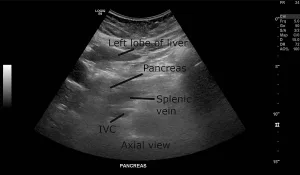
Have You Ever Wondered?
Most people don’t realize that a bloated belly can mean so much more than last night’s takeout or that second slice of cake. Honestly, I didn’t either…until ovarian cancer knocked me sideways. Here’s a memory I’ll never forget: staring at myself in the mirror, clutching my puffy stomach, and thinking, “Is this just happiness weight from being newly married? Or am I just…getting old?” The answer, as it turned out, changed everything.
If you’re here searching for pictures of bloated stomach ovarian cancer, I get it. You want to know what’s normal, what isn’t, and what it really looks and feels like when your own stomach changes shape–sometimes overnight. So let’s talk about it, friend to friend. Because these symptoms are sneaky—and the earlier you catch them, the better the odds.
Bloating That Won’t Budge
Let’s start with the basics: what does “ovarian cancer bloating” look like? And why does it get mistaken for literally everything else? I’ll share my experience, plus what’s straight from the medical experts, so you’re not left playing WebMD detective in the dark.
Why The Heck Am I So Puffy?
Bloating is so, so common. Hormones, cheese, period coming up…sometimes it feels like everything makes your stomach swell. But persistent bloating—meaning, it’s there most days, and it won’t leave you alone for weeks—is a red flag you shouldn’t ignore. According to research on symptoms of ovarian cancer, this kind of bloat can’t be fixed by probiotics or peppermint tea. It just sits there—tight, uncomfortable, and lasting way too long for comfort.research on symptoms of ovarian cancer
What causes it? In advanced ovarian cancer, fluid builds up inside the abdomen—a fancy word for this is ascites—making your belly look rounder, firmer, and even shiny sometimes.more on persistent ovarian cancer bloating I’ll be honest: in my case, it was startling. The swelling was so dramatic, I genuinely looked pregnant. (I have a pic, but…some things are best left to the imagination.)
Everyday Bloat vs. Ovarian Cancer Bloat
| Everyday Bloating | Ovarian Cancer Bloating | |
|---|---|---|
| How It Feels | Gassy, soft, passes with time or diet changes | Tight, hard, lasting for weeks even with healthy habits |
| Looks Like | Puffy at certain times, changes throughout the day | Round, distended, sometimes mistaken for pregnancy |
| Other Symptoms | Rarely any (maybe mild cramps or gas) | Pain, urinary urgency, feeling full quickly, nausea |
I know it’s tempting to shrug off changes. I did, too—blaming running, stress, hormones, you name it. I even googled does ovarian cancer bloating go down a dozen times, convinced it was just another odd body thing. But after weeks with no relief and a tight drum-like belly, I finally went to my doctor. That changed—well, everything. And that’s why I’m writing this.
When Bloating Means More
So what actually causes the bloat to get so bad with ovarian cancer? Here’s the messy truth: tumor cells in the ovaries (or sometimes fallopian tubes or peritoneum—that’s the lining inside your belly) can mess with how your body handles fluid. Instead of staying where it should, the fluid leaks out…turning your midsection into something you barely recognize.why does ovarian cancer cause bloating
There’s also a thing called “lymphatic blockage”—when cancer blocks the drainage highways in your abdomen, fluid piles up. The result? Major swelling and discomfort, and a feeling that you’re about to pop. It’s…not fun. You might also feel out of breath (as the swelling presses up on your lungs), or too full to finish a tiny meal.Mayo Clinic: why bloat happens
Real-Life Stories: Beyond the Stock Photos
Want proof it’s not just you? At MD Anderson, women described looking “nine months pregnant,” thinking it was just travel tummy or bad takeout…until one day, they realized something was very off.real stories about ovarian cancer symptoms I met other survivors who said their jeans suddenly wouldn’t button, and nothing changed—even when they ate less, ran more, or tried every diet hack. Sound familiar?
Got Questions? Me Too.
Maybe right now you’re mentally flipping through the last few weeks. “Did my waistband get tighter…am I more tired than before? And is it weird that I pee ten times a day now?” There are other possible symptoms that often show up alongside persistent bloating. Sometimes you feel full after a couple bites, or back pain that no foam roller can fix. Sometimes it’s constipation, sometimes it’s—let’s be honest—run-to-the-bathroom emergencies. Often, these changes creep in so gradually, it’s absurdly easy to ignore them.healthline list of early symptoms
Pay Attention To…
- Pain or new aches in your belly or pelvis
- Losing weight without even trying (not as fun as it sounds)
- Exhaustion that goes beyond “I need coffee” tired
- Sudden changes in bathroom habits—pee or poop!
It might be nothing. But if these stick around for weeks? Book that appointment. Please. Even if you’re “too young,” fit, or busy (been there).
Pics Versus The Real Thing
Let’s talk about why pictures of bloated stomach ovarian cancer are so hard to find—and why one photo may not tell the whole story. Search engines turn up dramatic examples: a woman looking undeniably pregnant, a belly stretched so round you want to wince. In reality? Sometimes it’s less obvious. For some, it’s just a firm pooch. For others, it’s like a tight basketball under the skin.
But here’s what’s constant: the swelling usually doesn’t go away. Your morning bloat is still there at night. Jeans that were loose on Monday are unbuttonable by Friday. That’s why reading stories and looking at comparisons matter. Hearing women describe the pressure, the weird fullness, the way their bodies stopped “feeling like theirs”—those stories are gold. (If you want a concrete comparison, check the table just above in this article!)
Curious About the Inside Story?
Pictures of the outside are useful, but images from the inside—like ultrasounds—tell an even richer story. When my own doctor sent me for imaging, I was terrified…and wildly curious. What would it show? Turns out, ovarian cancer images ultrasound aren’t pretty, but they’re powerful confessionals. They spot pockets of fluid, odd-shaped masses, and changes in texture that doctors are trained to see—but that a thousand Google searches just can’t match.
What Will an Ultrasound Show?
- Fluid buildup (aka ascites) that looks different from normal tissue
- Solid lumps or tumors—not just harmless, water-filled cysts
- Changes in the lining of the abdomen or ovaries
Want to see some typical scans? There’s a great selection of ovarian cancer images ultrasound that show what doctors look for. Sometimes the cancer is big and obvious. Sometimes, it’s tiny—and only a careful eye or a trained professional can tell something’s wrong. That’s why you shouldn’t self-diagnose from photos. Let your doc (or a friendly radiologist) do the detective work. But if you’re a visual learner like me, it definitely helps to know what might actually show up on those screens!
Does This Bloating Ever Go Down?
Whew, now we get to the hopeful part. If you’ve been anxiously googling does ovarian cancer bloating go down, here’s the truth: it depends. When the bloat is caused by a big meal, PMS, or stress, it’ll fade away on its own (with a little help from water, fiber, walking, or patience). But when the culprit is cancer, that ascites fluid sticks around or even gets worse—until the root problem is treated. I can absolutely say, after a few rounds of chemo and a couple tough weeks, my stomach did shrink back to earth. It’s not magic—it’s medicine. And even if it takes time, relief can come. Sometimes paracentesis (a fluid drain), surgery, or medications help speed things along.does ovarian cancer bloating go down
Let’s Make This Practical
If you’re tracking persistent bloating, keep a quick diary—days, symptoms, what helps, what doesn’t. Take that detail to your doctor. Advocate for yourself. Push for more than just “watch and wait” if you know something’s off. There are symptoms journaling guides online that make this super-easy. You’re not being dramatic. Trust your gut—literally.
My Story—And Yours?
Here’s the most personal bit. The day my marathon training stopped cold? I woke up for a long run, only to find my belly a little firmer…a little off. It wasn’t pain—just a deep discomfort, plus I felt strangely tired. But being a nurse, a mom, and, honestly, a professional “shrugger-offer” of my own symptoms, I didn’t call my doc. Instead, I just wore looser clothes, skipped runs, and blamed my less-than-perfect diet. Fast forward: A week later, the bloat was bigger. Eating? Only a few bites before, “ugh, I’m full!” That was my line in the sand. Tests, a quick ovarian cancer images ultrasound, and a few scary conversations later, I was a full-fledged member of the “I should have trusted my own body” club.
I’m not telling you this to make you anxious, but to help you step up if anything like this is happening in you.
What Happens Next?
If you’re reading this after a long day with that same tight, round belly, please, please don’t panic—but also don’t ignore it. Book an appointment. Take your notes. Mention your family history if there’s any. Ask about ultrasounds. Demand to know, “Is this ordinary bloat, or should we look further?” You aren’t wasting anyone’s time. You’re taking care of the only body you’ve got. And if it helps, bring this article, this table, or any of these stories to your appointment as proof that you’re not just overthinking things.
It’s Your Move—You’ve Got This
Whew, what a journey, right? We talked about pictures of bloated stomach ovarian cancer, the stories behind those images, and the subtle signs that so easily get dismissed. If I can leave you with anything, it’s this: your intuition + persistence is powerful. Catching symptoms early makes a huge difference—the survival odds zoom from 30% to 80% if ovarian cancer gets found before spreading. So don’t be shy. Don’t be embarrassed.
Keep moving, keep asking, keep believing that “weird bloat” is worth checking out. And when you’re ready, use tools like does ovarian cancer bloating go down to keep learning and connecting. Or peek at real ovarian cancer images ultrasound scans to see what doctors are looking for. Share your story or your questions below—I promise, you’re not alone in this. Here’s to catching sneaky symptoms, taking back your life, and never, ever dismissing what your own belly is telling you.

























Leave a Reply
You must be logged in to post a comment.